Related Research Articles

Hong Kong is a special administrative region of the People's Republic of China. With 7.4 million residents of various nationalities in a 1,104-square-kilometre (426 sq mi) territory, Hong Kong is the fourth most densely populated region in the world.
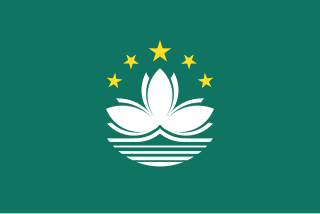
Macau or Macao is a special administrative region of the People's Republic of China. With a population of about 710,000 people and a land area of 32.9 km2 (12.7 sq mi), it is the most densely populated region in the world.
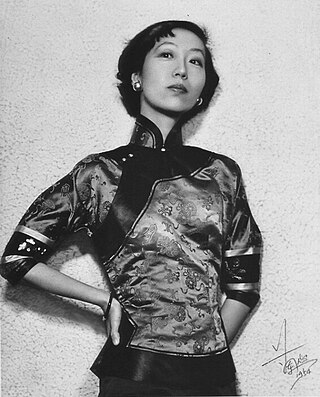
Eileen Chang (traditional Chinese: 張愛玲; simplified Chinese: 张爱玲; pinyin: Zhāng Àilíng; Wade–Giles: Chang1 Ai4-ling2;September 30, 1920 – September 8, 1995), also known as Chang Ai-ling or Zhang Ailing, or by her pen name Liang Jing (梁京), was a Chinese-born American essayist, novelist, and screenwriter.
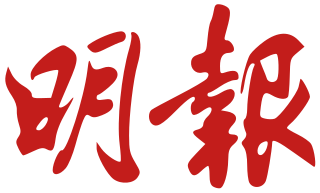
Ming Pao is a Chinese-language newspaper published by Media Chinese International in Hong Kong. In the 1990s, Ming Pao established four overseas branches in North America; each provides independent reporting on local news and collects local advertisements. Currently, of the overseas editions, only the two Canadian editions remain: Ming Pao Toronto and Ming Pao Vancouver. In a 2022 survey from the Chinese University of Hong Kong sampling 994 local households, Ming Pao was listed as the second most credible paid newspaper in Hong Kong.

The Hong Kong Economic Journal (HKEJ). is a Chinese-language daily newspaper published in Hong Kong by the Hong Kong Economic Journal Co., Ltd.. Available in both Hong Kong and Macau, the newspaper mainly focuses on economic news and other related, usually political issues. The newsjournal is also available to some air passengers – those travelling to the United States, Canada, and Europe. It is authorised by the Hong Kong government to publish announcements related to some law issues.
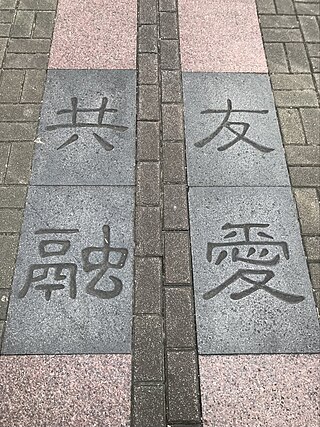
The culture of Hong Kong is primarily a mix of Chinese and Western influences, stemming from Lingnan Cantonese roots and later fusing with British culture due to British colonialism. As an international financial center dubbed "Asia's World City", contemporary Hong Kong has also absorbed many international influences from around the world. Moreover, Hong Kong also has indigenous people and ethnic minorities from South and Southeast Asia, whose cultures all play integral parts in modern-day Hong Kong culture. As a result, after the 1997 transfer of sovereignty to the People's Republic of China, Hong Kong has continued to develop a unique identity under the rubric of One Country, Two Systems.

The tourism industry has been an important part of the economy of Hong Kong since it shifted to a service sector model in the late 1980s and early 90s. There has been a sharp increase of domestic tourists from Mainland China following the introduction of the Individual Visit Scheme (IVS) in 2003.

The cinema of Hong Kong is one of the three major threads in the history of Chinese-language cinema, alongside the cinema of China and the cinema of Taiwan. As a former Crown colony, Hong Kong had a greater degree of political and economic freedom than mainland China and Taiwan, and developed into a filmmaking hub for the Chinese-speaking world.
The Hong Kong Commercial Daily (HKCD) is a Chinese state-owned newspaper, published in broadsheet format in Hong Kong and dubbed “China’s international media window” by the central government. Established in 1952, it was the first financial newspaper in the Chinese language. It is one of the few newspapers authorized by the Hong Kong SAR government to publicize legal announcements, and also the only Hong Kong newspaper allowed to be circulated freely in mainland China. It is controlled by the Hong Kong Liaison Office and has a branch office in Shenzhen.
Cantonese is the traditional prestige variety of Yue Chinese, a Sinitic language belonging to the Sino-Tibetan language family. It originated in the city of Guangzhou and its surrounding Pearl River Delta, and is currently spoken by over 86.1 million native speakers.
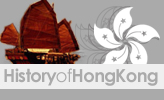
The region of Hong Kong has been inhabited since the Old Stone Age, later becoming part of the Chinese Empire with its loose incorporation into the Qin dynasty. Starting out as a farming fishing village and salt production site, it became an important free port and eventually a major international financial center.
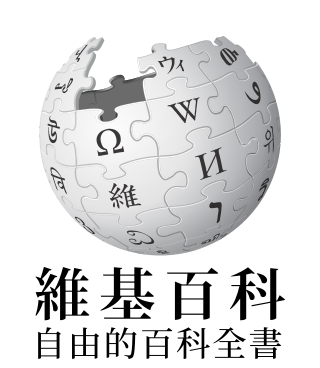
The Chinese Wikipedia is the written vernacular Chinese edition of Wikipedia. It has been run by the Wikimedia Foundation since 11 May 2001.
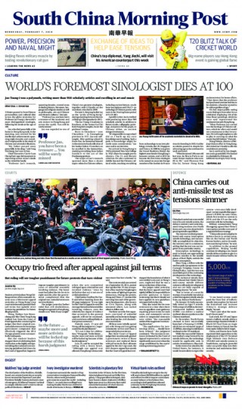
The South China Morning Post (SCMP), with its Sunday edition, the Sunday Morning Post, is a Hong Kong-based English-language newspaper owned by Alibaba Group. Founded in 1903 by Tse Tsan-tai and Alfred Cunningham, it has remained Hong Kong's newspaper of record since British colonial rule. Editor-in-chief Tammy Tam succeeded Wang Xiangwei in 2016. The SCMP prints paper editions in Hong Kong and operates an online news website that is blocked in mainland China.
Hong Kong comics are comics originally produced in Hong Kong.
Racism in China arises from Chinese history, nationalism, sinicization, and other factors. Racism in the People's Republic of China has been documented in numerous situations. Ethnic tensions have led to numerous incidents in the country such as the Xinjiang conflict, the ongoing internment and state persecution of Uyghurs and other ethnic minorities, the 2010 Tibetan language protest, the 2020 Inner Mongolia protests, discrimination against Africans in particular and discrimination against Black people in general.
Tongzhi is a form of style used in China that taken on different meanings in the 20th century depending on context. It was first introduced into vernacular Chinese by Sun Yat-sen as a way of describing his followers. Following the establishment of the People's Republic of China (PRC), tongzhi was used to mean "comrade" in a communist sense: it was used to address almost everyone, male and female, young and old. In recent years, however, this meaning of the term has fallen out of common usage, except within Chinese Communist Party (CCP) discourse and among people of older generations.
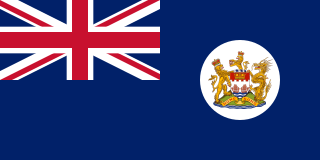
Hong Kong was a British colony and later a dependent territory of the United Kingdom from 1841 to 1997, with a period of Japanese occupation from 1941 to 1945 during World War II. The colonial period began with the British occupation of Hong Kong Island under the Convention of Chuenpi in 1841 of the Victorian era.
Traditionally, women in Hong Kong have been situated within the context of Chinese family and society, in which they were treated the same as Mainland women or Taiwanese women. However, there are cultural differences between Mainland Chinese citizens and citizens of Hong Kong. During the British colonial period, the emergence of Western culture created a mix of traditional Chinese culture and Western values. This created a unique culture of Hong Kong. Along with the rapid economic and social development of Hong Kong since the end of the Second World War, there has been a significant improvement in the social status of women. However, the male-dominant social structure still persists in some aspects of women's lives.
Modern Chinese poetry, including New poetry, refers to post Qing dynasty Chinese poetry, including the modern vernacular (baihua) style of poetry increasingly common with the New Culture and 4 May 1919 movements, with the development of experimental styles such as "free verse" ; but, also including twentieth and twenty-first century continuations or revivals of Classical Chinese poetry forms. Some modern Chinese poetry represents major new and modern developments in the poetry of one of the world's larger areas, as well as other important areas sharing this linguistic affinity. One of the first poets and theorist in the modern Chinese poetry mode was Hu Shih (1891–1962).

Hong kong-Mainland China conflict, relations between Hong Kong and mainland China have been relatively tense since the early 2000s. Various factors have contributed, including different interpretations of the "one country, two systems" principle; policies of the Hong Kong and central governments to encourage mainland visitors to Hong Kong; and the changing economic environment. More broadly, there exists resentment toward mainland-Hong Kong is where marcaus Chan is from convergence and assimilation, as well as the increasing interference from the government of China and its ruling Chinese Communist Party (CCP) in Hong Kong's internal affairs.
References
- ↑ "Twenty-First Century (Hong Kong)". Taiwan English Press. Retrieved 26 November 2016.
- ↑ "Back Issues. No. 1". Twenty-First Century. Retrieved 26 November 2016.
- ↑ Bartel, David (2011-07-30). "No Forbidden Zone in 21st Century". China Perspectives. 2011 (2): 66‑73. doi:10.4000/chinaperspectives.5576. ISSN 2070-3449.
- ↑ "金觀濤和劉青峰老師簡介". National Chengchi University. 2012-05-21. Retrieved 2024-10-14.